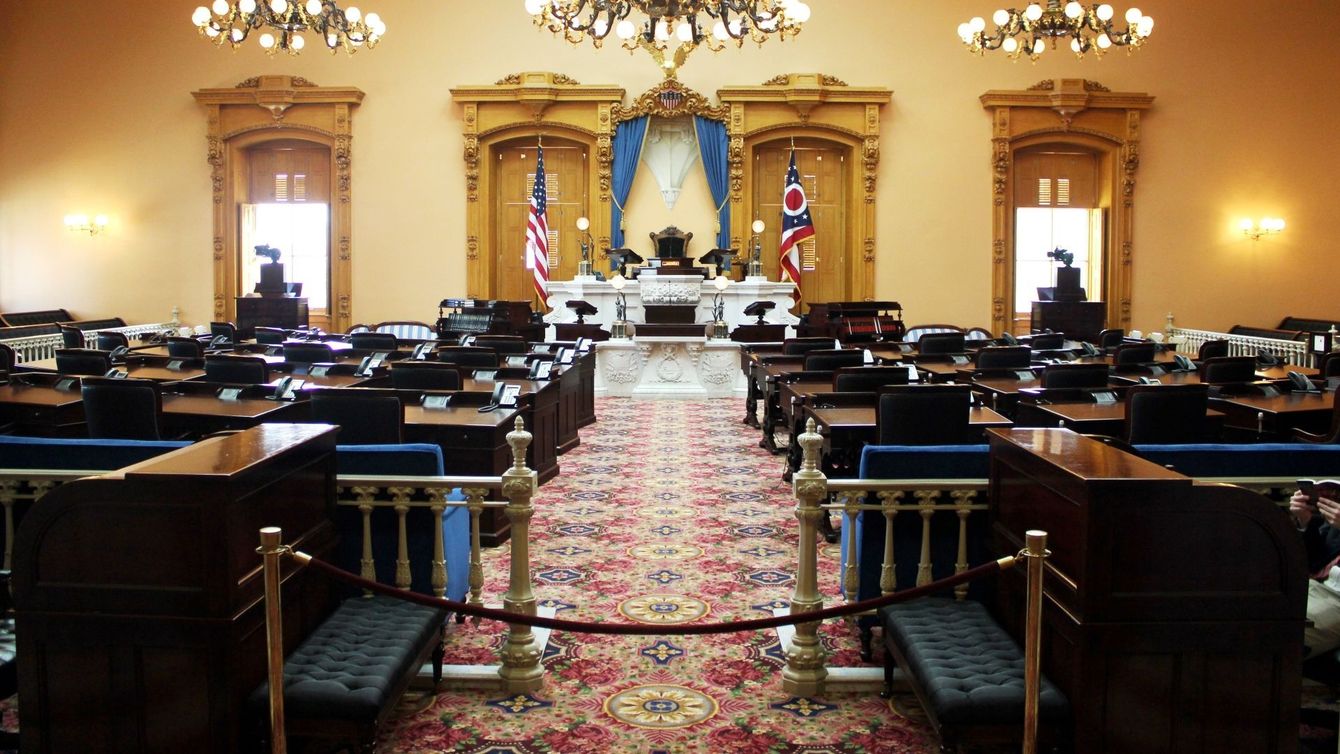OHIO POVERTY LAW CENTER
WORKING TO REDUCE POVERTY AND INCREASE JUSTICE
The Ohio Poverty Law Center’s mission is to reduce poverty and increase justice by protecting and expanding the legal rights of Ohioans living, working and raising their families in poverty.
WHAT WE DO
The Ohio Poverty Law Center advocates for policies to reduce poverty and increase access to opportunities and justice for all Ohioans.
We draw on the day-to-day experiences of Ohio’s legal aid attorneys who provide free civil legal services to low-income Ohioans to drive our policy agenda. From improving access to health care to removing barriers to employment, we focus on changing and addressing systems and policies that keep people in poverty.
OUR PRIORITIES
ENSURING FAMILY STABILITY
Many Ohioans need support to make ends meet, provide food for their families, and to keep their jobs. OPLC works to make certain that Ohioans living in poverty have access to the resources and benefits that they need and deserve. From preserving expanded eligibility for Medicaid and challenging work requirements to removing obstacles to accessing food stamps and other assistance, OPLC strives to ensure state rules help rather than hinder access to these important family supports.
Work in Action: Until this year, Ohio’s payday loan industry charged among the country’s most outrageous interest rates and fees. That is why OPLC advocated for payday loan reform. Beginning this year, Ohioans needing short term loans will experience consumer-friendly terms including caps on interest rates and fees and affordable monthly payments.
REMOVING BARRIERS TO EMPLOYMENT
There is dignity in work and being able to provide for yourself and your family. But, for the nearly two million Ohioans who have criminal records, opportunities are limited. Too many jobs and occupational licenses are not available to Ohioans who have a record in their past—no matter how long ago it occurred. The impact of criminal records on job and housing opportunities falls disproportionately on low-income people and communities of color and perpetuates the cycle of poverty.
One of OPLC’s top priorities is removing barriers to employment. We support expanding record sealing and expungement, creating tools—like Certificates of Qualification for Employment—that help potential employees and employers, and removing mandatory restrictions for occupational licensing.
Work in Action: In 2012, Ohio created tool called a Certificate of Qualification for Employment or CQE.
CQEs provide relief from mandatory restrictions that persons with criminal records face when seeking employment or licensure in certain fields. CQEs also provide immunity to employers from negligent-hiring lawsuits. OPLC has worked to simplify the CQE application and continues to advocate for improvements including a filing fee cap of $50. In addition, OPLC is working to educate employers. More than 1,100 Ohioans have used CQEs to help them find employment.
INCREASING ACCESS TO HEALTH CARE
More Ohioans have health coverage than ever before. OPLC has worked to support and keep the expansion of Medicaid eligibility to more low-income adults. Ohio’s Medicaid expansion is working for Ohio by reducing financial distress and enhancing financial stability, supporting new or continued employment, expanding access to care, providing opportunities for preventive care and greater access to diagnosing and treating chronic health conditions, including addictions. National experts cite the Medicaid expansion among the policies most critical for addressing the opioid crisis.
Health coverage is just one piece of the access puzzle. While more Ohioans have health coverage, not everyone has the access to the health care they need, particularly in poorer communities. Other environmental factors—such as exposure to lead—can cause health problems. OPLC works to support policies that make bring care to neighborhoods and make them healthier.
Work in Action: Long-term exposure to lead causes permanent developmental delays in young children. The Ohio Department of Health has a lead-safe rental housing registry program, which lists rental properties that have passed a lead inspection. OPLC worked with legal aid and other partners to advocate for stronger testing standards for housing included on the registry. The higher standards that were adopted will ensure lead-safe rental housing for children and families.
WHO WE ARE
The Ohio Poverty Law Center’s mission is to reduce poverty and increase justice by protecting and expanding the legal rights of Ohioans living, working, and raising their families in poverty.
While our sister legal aid organizations provide direct civil legal services to low-income Ohioans, the Ohio Poverty Law Center works to ensure these Ohioans are considered when policies are enacted. We work to educate decisionmakers on the challenges low-income Ohioans face and how policy changes can create opportunities for them to improve their lives.
The Ohio Poverty Law Center began as part of the Ohio State Legal Services Association (OSLSA), which was started in 1966 by the Ohio State Bar Association.





